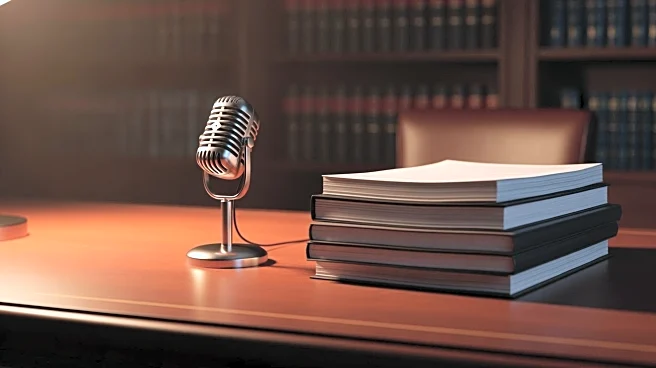What's Happening?
Pressure is mounting for Andrew Mountbatten-Windsor, formerly Prince Andrew, to provide testimony to a U.S. congressional committee investigating Jeffrey Epstein. The call for Andrew to testify comes after Britain's Prime Minister Keir Starmer suggested
that individuals with relevant information should cooperate with investigators. Andrew has been requested by the House Oversight Committee to participate in a transcribed interview regarding his friendship with Epstein. Despite losing his royal titles and honors last month, Andrew has not responded to the committee's request. The committee, led by Rep. Robert Garcia and Rep. Suhas Subramanyam, is determined to proceed with its investigation, emphasizing accountability for all involved, regardless of their status.
Why It's Important?
The investigation into Jeffrey Epstein's network is significant due to the high-profile nature of the individuals involved and the serious allegations of sex trafficking. Andrew's potential testimony could provide crucial insights into Epstein's operations and connections. The case highlights the broader issue of accountability for powerful figures in society, reinforcing the principle that wealth and status should not shield individuals from legal scrutiny. The committee's commitment to justice for survivors underscores the importance of transparency and cooperation in legal investigations, potentially influencing public trust in governmental processes.
What's Next?
If Andrew agrees to testify, it could lead to further revelations about Epstein's network and potentially implicate other high-profile individuals. The committee may continue to pursue other witnesses and evidence to build a comprehensive understanding of the case. Political leaders and public figures may face increased pressure to address issues of accountability and justice in similar cases. The investigation's progress could impact public perception of the royal family and its handling of controversies.
Beyond the Headlines
The situation raises ethical questions about the responsibilities of public figures and the extent to which they should be held accountable for their associations. It also highlights the cultural challenges in addressing historical power dynamics and privilege. The case may prompt discussions about the role of the media in uncovering and reporting on such issues, as well as the legal frameworks necessary to address crimes involving influential individuals.

















